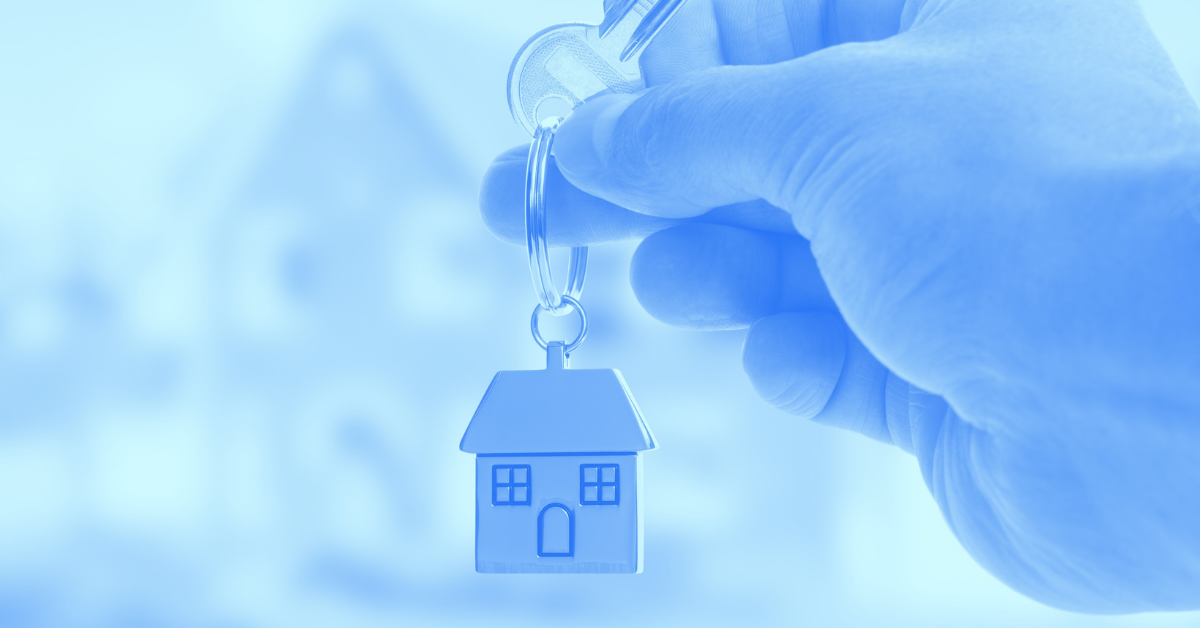How Much House Can I Afford?
Share this

You have a steady job, a good credit score, and you’re on track with your retirement savings. You don’t have consumer debt, you've knocked out your student loans (or have them on a manageable payment plan), and you have a little cash savings, too.
With these financial bases covered, you may feel that you’re in a good position to afford your first home.
But according to the a recent survey conducted by Realtor.org, buying a home is still an expensive proposition for first-time buyers despite lower mortgage interest rates and a rising household median income.
Before diving into the home ownership pool, consider the following points to help you make a financial decision that you can live with -- and understand how much house you can afford.
Lifestyle: Today and Beyond
It’s important to not only look at your current lifestyle but the one you envision for yourself in a few years as well. If you’re currently single or engaged but are planning to get married and/or have children in the near future, then you may want to buy a home that can accommodate those plans.
This can save you money as you’d avoid the transactional costs tied with selling in order to buy a bigger home down the line. It can also help you prepare for increased costs of living. For example, you may be able to afford a $2000 per month mortgage payment now. But when you have kids and need to pay $1800 per month for daycare, will your budget be able to handle it?
And bigger is not always better regardless of whether or not you’re looking to expand your family. You may not want to maintain a larger property and prefer the convenience of condo living.
Take a moment to consider what your personal life goals are and decide on a property that will support your lifestyle for years to come. Homes aren’t easy to unload, so give yourself -- and your budget -- room for flexibility.
Location, Location, Location
You may have heard the adage “location is everything” and in real estate, it’s largely true. After you’ve determined what style and size of home you’ll need, the next step is to partner with a reputable realtor.
Finding a realtor who is knowledgeable not only about real estate in general but has experience with the neighborhoods you are looking at is crucial. They will be able to locate desirable homes in neighborhoods where the resale values are consistently strong.
Take the time to meet with several real estate professionals and obtain references. Buying a home is a major financial purchase so the preliminary research is worth the effort.
Can You Really Afford It?
Determining whether you can afford the home you want is truly the crux of the home buying process. You should first review your current expenses in relation to your household income.
Go over the following questions -- or seek the assistance of a financial advisor.
Your responses will help clarify if you are ready for homeownership:
- Are your debts significant enough that they could impact your ability to obtain a mortgage?
- Would a mortgage plus related housing expenses exceed 30% of your net household income?
- Do you have enough savings in addition to your down payment to contend with emergency expenses?
- Is buying a home in your best interest and a financial decision that you are comfortable with?
Saving 20% percent of the home purchase amount in order to avoid PMI (private mortgage insurance) is ideally what you should aim for. If you have your heart set on a home that is $350,000, then you’d need to save $70,000 for a 20% downpayment on a conventional mortgage.
If you’re short on a 20% down payment then you can choose to wait until you reach your savings goal, put a smaller down payment, consider a less expensive home or explore alternative options such as government funded loan programs.
Don’t Forget the Extras
Avoid being blindsided by the additional expenses related to a home purchase. You’ll have to pay property taxes, homeowner's insurance, new furnishings, and closing costs such as title and mortgage lender fees — just to name a few.
Another consideration that many new homeowners don’t factor is ongoing home maintenance. It’s suggested that you save 1-3% of the property value annually towards maintenance costs. Appliances will eventually need replacing, structural issues may surface and you’ll want to ensure that curb appeal remains high for resale purposes.
Above everything, don’t rush into buying a home before doing your homework. You can determine how much home you can afford by asking questions and working with a professional who can help you see the full picture -- including factors that you may not even know to take into account.
The time you’ll invest will lead you to an enjoyable homeownership experience that your financial situation will thank you for, today and for years to come.
About the Author: Kassandra Dasent is a freelance writer, business consultant and advocates  financial wellness as a certified financial educational instructor. Her work has been featured in several online publications including Yahoo Finance, MSN.com and US News & World Report. Connect with Kassandra via Twitter @KassandraDasent
financial wellness as a certified financial educational instructor. Her work has been featured in several online publications including Yahoo Finance, MSN.com and US News & World Report. Connect with Kassandra via Twitter @KassandraDasent
Share this
- Good Financial Reads (923)
- Financial Education & Resources (892)
- Lifestyle, Family, & Personal Finance (865)
- Market Trends (114)
- Investment Management (109)
- Bookkeeping (55)
- Employee Engagement (32)
- Business Development (31)
- Entrepreneurship (29)
- Financial Advisors (29)
- Client Services (17)
- Journey Makers (17)
- Fee-only advisor (12)
- Technology (8)
Subscribe by email
You May Also Like
These Related Stories

Good Financial Reads: Building Your Financial House, Stop Digging and Get Out of the Hole, and More

Good Financial Reads: How to Craft Your Goals & Make Personal Finance Decisions

